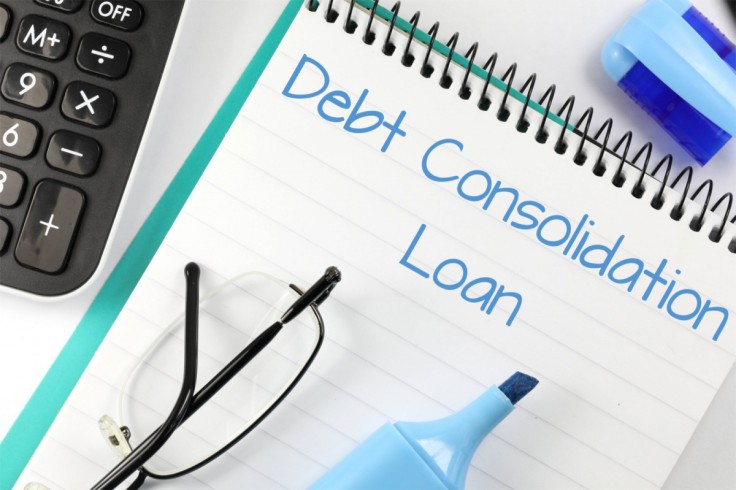
Many people have debt in the form of credit card balances, personal loans, car payments, etc. Keeping track of the due dates and coping with high-interest rates can be challenging. Suppose you want to simplify meeting your financial obligations. Debt consolidation may be a viable option.
This article explains the concept of debt consolidation, its benefits, potential drawbacks, and various methods available for consolidating debts.
Debt Consolidation Explained
Debt consolidation means merging several debts into one. Instead of dealing with multiple creditors and due dates, you only have to deal with one every month. The primary purpose is to streamline the repayment process. However, it can also reduce interest payments and make it easier to regain control over your finances.
You have several options regarding the method of debt consolidation. The following are the most common ones:
Debt Consolidation Loans
One popular debt consolidation method is obtaining a debt consolidation loan. That involves taking out a new loan to pay off existing debts. You can then focus on repaying the consolidation loan, ideally at a lower interest rate.
For example, suppose you have balances on six credit cards with different due dates. You have the option to get a credit card consolidation loan to pay all six cards off and pay that loan monthly. The approach simplifies the repayment process, as there is only one payment to manage. However, securing a consolidation loan with favorable terms is crucial to ensure real financial benefits.
Balance Transfer
Another popular method is using a balance transfer credit card. That involves transferring existing balances from multiple credit cards onto a single card, often with a lower or zero percent introductory interest rate. While this method can effectively reduce interest payments temporarily, it's essential to consider potential balance transfer fees and the regular interest rate that kicks in after the introductory period.
Home Equity Loans or Lines of Credit
You can explore using your home equity in their homes to manage debt through a home equity loan or line of credit. These secured loans use the home's value to acquire a lump sum or a revolving credit line. While interest rates may be lower, the risk lies in using the home as collateral—failure to repay could result in foreclosure.
Benefits
Debt consolidation is a financial strategy tailored to help you manage your debts. Below are some benefits:
Simplified Repayment
Debt consolidation's primary advantage is streamlining the repayment process. Managing multiple payments, each with its interest rate and due date can be confusing and stressful. Debt consolidation consolidates these debts into one, making it easier to keep track of and manage.
Potential for Lower Interest Rates
You may secure a lower overall interest rate depending on the consolidation method. That can lead to decreased monthly payments and savings over the life of the consolidated loan.
Improved Credit Score
Successfully consolidating and managing debt can positively impact an individual's credit score. Timely payments and responsible financial behavior demonstrate creditworthiness, which can contribute to an improved credit profile.
Avoidance of Default
Suppose you are struggling to make timely payments on multiple debts. Debt consolidation can help you avoid default. By combining debts into a single payment with more favorable terms, individuals are less likely to miss payments and face the consequences of default.
Drawbacks
Debt consolidation might seem like the perfect solution to your financial problems, but it is not all roses. Here are some drawbacks to consider:
Risk of More Debt
Consolidating debt does not eliminate it; it simply restructures it. Individuals must exercise caution to avoid accumulating additional debt while repaying the consolidated amount. Otherwise, they may find themselves in a worse financial situation.
Fees and Costs
Some debt consolidation methods, such as balance transfers or certain loans, may involve fees and costs. You should carefully review the terms and conditions to understand the total consolidation cost and ensure you won't be worse off than before.
Secured Debt Risks
Opting for secured debt consolidation methods, such as home equity loans, involves the risk of forfeiting assets (e.g., home) if you default on payments. It would be best to weigh the potential benefits against the risks of securing their debt with valuable assets.
Debt Consolidation Can Help
Debt consolidation can be effective for simplifying your life and helping you regain control over your finances. However, it is not a one-size-fits-all solution, and careful consideration of individual circumstances is crucial. Before embarking on a debt consolidation journey, individuals should thoroughly research and understand the various methods, associated costs, and potential risks.
With proper planning and responsible financial management, debt consolidation can effectively achieve monetary stability and work toward a debt-free future.
© 2025 University Herald, All rights reserved. Do not reproduce without permission.








